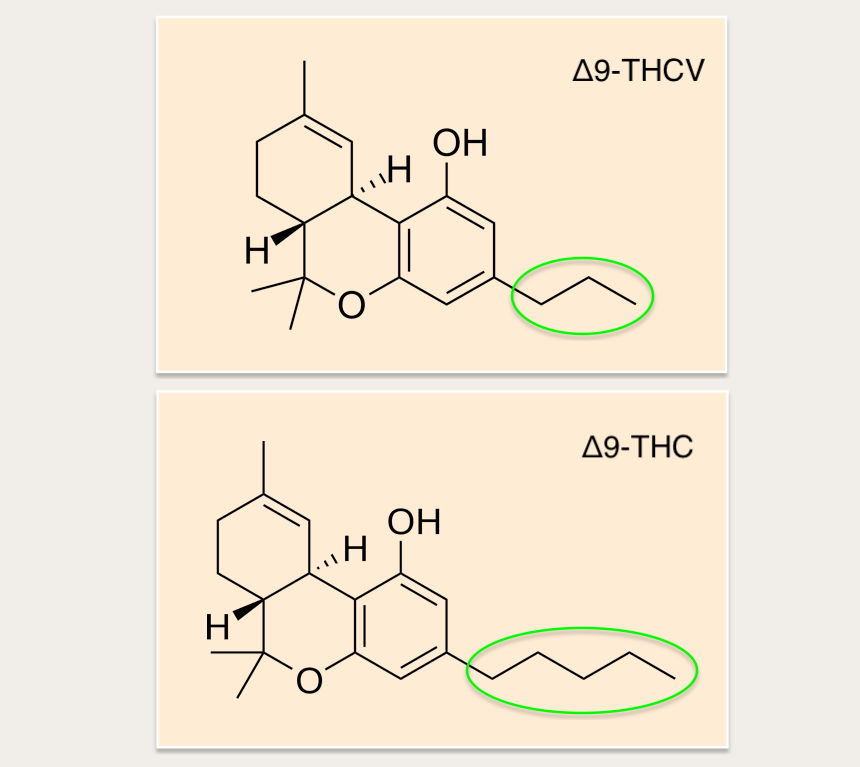Tetrahydrocannabivarin (THCV) is Informative post a cannabinoid substance discovered in marijuana and hemp plants. It's chemically comparable Discover more to tetrahydrocannabinol (THC) however with some key distinctions. Here's whatever you need to learn about THCV consisting of the threats, benefits, differences, and similarities with other types of THC and more. What Is THCV? THCV is a less typical cannabinoid discovered in some pressures of cannabis, especially African sativa.
 THCV - Cresco Labs
THCV - Cresco Labs
 What is THCv Cannabinoid Explained - leafipedia.net
What is THCv Cannabinoid Explained - leafipedia.net
 What Is THCV and What Are the Benefits of This Cannabinoid?
What Is THCV and What Are the Benefits of This Cannabinoid?
THCV has a 3-carbon side chain rather than THC's 5-carbon side chain. This distinction is subtle, however it has an obvious effect on the effect profile. THCV is somewhat psychedelic however only about and about. What Does THCV Seem like? THCV has a strong energy-boosting part to it, which makes it specifically popular among students and athletes.
In the United States, THCV policy is nuanced. THCV is not a Schedule I Drug, but cannabis extracts are making it somewhat unclear what the federal position is on THCV. The 2018 Farm Costs mentions that hemp plants and all derivatives of the plants are legal on a federal level, so many business follow this law and still offer THCV to clients by only drawing out the substance from hemp plants.
If THCV is considered a THC analog, it might be managed in the future by the very same guidelines as THC under the Federal Analog Act. This act mentions that any compound that shares a similar molecular profile as a recognized forbidden substance it's included in the same drug Arrange category.
What Are the Results of THCV? Advocates of THCV report that it produces an intense burst of energy and makes them feel http://marioztlg151.wpsuo.com/what-is-thcv-tetrahydrocannabivarin-and-what-does-it-do-1 euphoric without the psychological cloudiness triggered by THC. The results are super moderate compared to THC. The effects are almost specifically cognitive yet somehow have very little effect on headspace.
2. THCV & Cravings Some THCV users declare that it curbs their hunger. This is a common impact of other focus-enhancing substances. It's as though THCV gets rid of the diversion of other physical procedures (like appetite) in order to maintain resources and attention to cognitive tasks rather. How Does THCV Work? Cannabinoids produce biological effects in the human body by interacting with endocannabinoid receptors.
CB1 receptors lie in the nerve system and interact with neurotransmitters in the brain to produce mind-altering impacts. Interaction with CB1 websites is what gives some cannabinoids like THC their psychoactivity. THCV is a bit tricky to understand since it's mainly a CB1 antagonist, implying it has the opposite effect as THC.
While researchers are still looking for to comprehend this procedure, it appears THCV has the ability to block the impacts of CB1 in low dosages and promote them in high doses. CB2 receptors are found mainly in the body immune system. THCV is a partial agonist of CB2, however the results of this partial activity aren't well-known, and it seemingly has no discernible effect on THCV users' experience.
As discussed in the previous section, THCV is a CB1 antagonist in low doses which is the exact opposite result of delta 8 and delta 9 THC. This could imply that THCV counteracts some of the psychoactive impacts of THC. This result might describe why individuals who use THCV feel so clear-headed especially compared to the notorious "fogginess" induced by delta 9 THC.